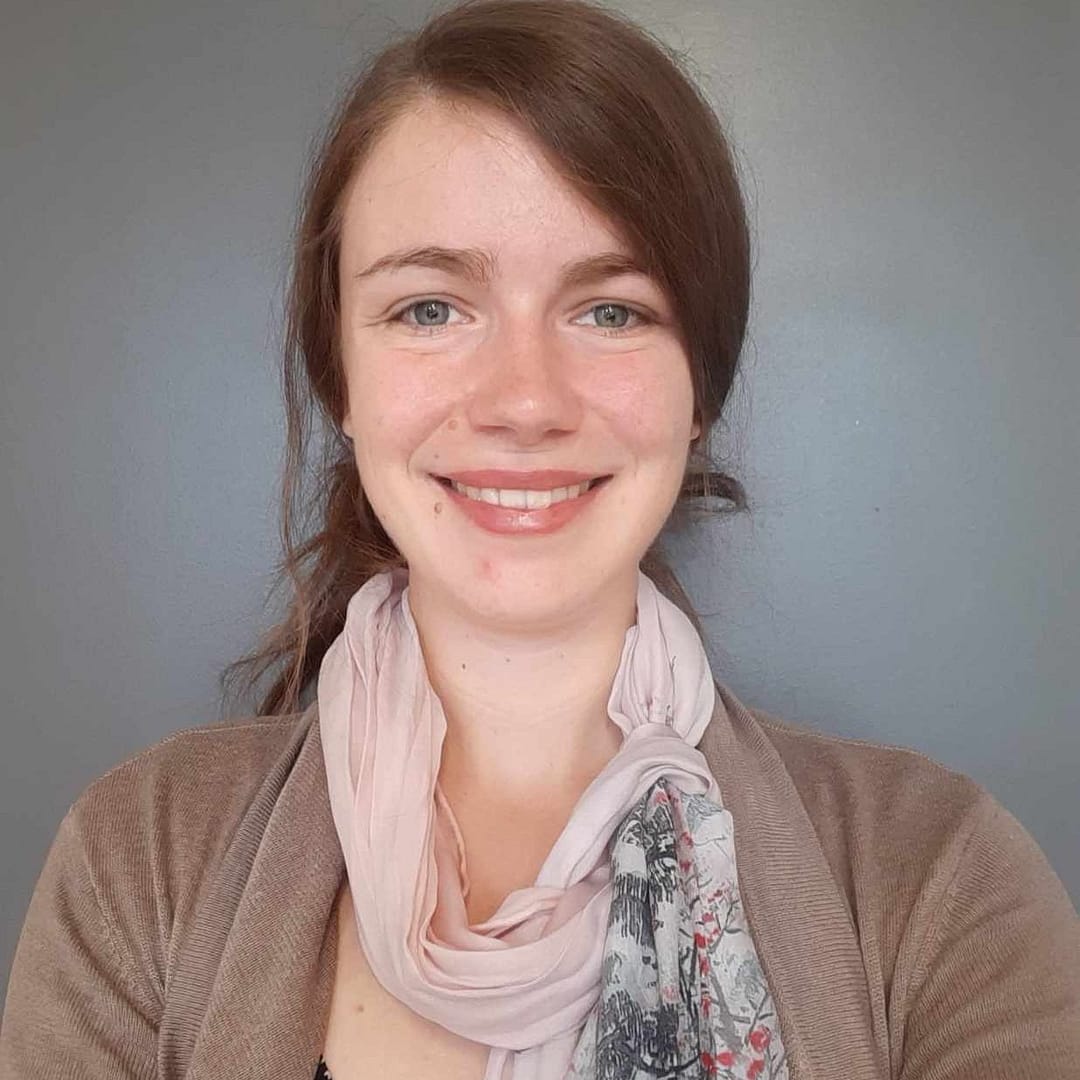Team
Chairholder
Sandra Breux

Sandra Breux is a professor-researcher at the Institut national de la recherche scientifique (INRS). For several years, she has been developing a research project on the municipal level in Quebec and Canada. Her research interests focus on both municipal representative democracy and the role of territory on individual behaviour. Since 2019, she has headed the Villes Régions Monde network (www.vrm.ca).
Publications
Books
Breux, S., & Holden, M., (Eds.). (2023). Regards croisés sur les études urbaines Québec/Colombie-Britannique. Quebec, Presses de l’Université Laval, 296 p.
English version: Holden, M., & Breux, S., (Eds.). (2023). Crossing paths, crossing perspectives: Urban Studies in Québec and in British-Columbia. Quebec City: Presses de l’Université Laval. Role: co-initiated the publication, wrote one chapter and the introduction.
Breux, S., & Couture, J., (Eds..) (2018). Accountability and Responsiveness at the Municipal Level. Views from Canada. Montreal, McGill-Queen’s University Press, 284 p. Role: co-initiator of the publication.
Special issues management
Breux, S., & Couture, J., (Eds.). (2021). Municipal Elections in Canada: Qualitative Insights. Frontiers in Political Science. https://doi.org/10.3389/fpos.2022.886618. Role: co-initiator of the project.
Devisme, L., & Breux, S. (2018). The presence-absence of urban studies in France. Environnement urbain/Urban Environment, 13, online, https://journals.openedition.org/eue/2456. Role: 50% project organization, 50% of the writing.
Book chapters
Breux, S., Couture, J., & Mévellec, A. (2022). Does the Left-Right Axis Matter in Municipal Elections?. In É. Bélanger, C. D. Anderson, & M. McGregor (Eds.), Voting in Quebec Municipal Elections: A Tale of Two Cities (pp. 94−116). Toronto, University of Toronto Press. Role: 50% of the writing.
Couture, J., & Breux, S. (2021). Quebec City. In J. Lucas, & M. McGregor (Eds.), Big City Elections in Canada (pp. 79−99). Toronto, University of Toronto Press. Role: 50% of the writing.
Breux, S. (2019). Municipal elections in Quebec. In J.-P. Brady (Ed.), Introduction à la vie politique municipale québécoise (pp. 63−88). Quebec, Presses de l’Université Laval.
Breux, S., & Couture, J. (2018). Why Look at Accountability and Responsiveness at the Canadian Municipal Level? (Introduction). In S. Breux, & J. Couture (Eds.), Accountability and Responsiveness at the Municipal Level. Views from Canada (pp.3−20). Montreal, McGill-Queen’s University Press. Role: 70% of the editorial work.
Couture, J., & Breux, S. (2018). Accountability without Parties? Political Business Cycle and the Re-election of Incumbents. In S. Breux, & J. Couture (Eds.), Accountability and Responsiveness at the Municipal Level. Views from Canada (pp. 49−75). Montreal, McGill-Queen’s University Press. Role: 50% of the editorial work.
Couture, J., & Breux, S. (2018). Do Responsiveness and Accountability Matter at the Municipal Level?. In S. Breux, & J. Couture (Eds.), Accountability and Responsiveness at the Municipal Level. Views from Canada (pp. 266−280). Montreal, McGill-Queen’s University Press. Role: 30% of the editorial work.
Couture, J., Breux, S., & Bherer, L. (2018). Political Accountability and Responsiveness: What is the Role of Municipal Political Parties?. In S. Breux, & J. Couture (Eds.), Accountability and Responsiveness at the Municipal Level. Views from Canada (pp. 75−104). Montreal, McGill-Queen’s University Press. Role: 30% of the editorial work.
Couture, J., Breux, S., & Goodman, N. (2017). Does Internet voting increase voter turnout?. In H. Loiseau, & E. Waldispuehl (Eds.), Cyberespace et science politique. De la méthode au terrain, du virtuel au réel (pp. 123−148). Montreal, Presses de l’Université du Québec. Role: 40% of the writing.
Diaz, J., & Breux, S. (2017). The throes of becoming a smart city. In H. Loiseau, & E. Waldispuehl (Eds.), Cyberespace et science politique. De la méthode au terrain, du virtuel au réel (pp. 254−281). Montreal, Presses de l’Université du Québec. Role: 40% of the writing.
Scientific journal articles
Breux, S., & Parent, R. (2023). Plus difficile d’être élu dans une petite municipalité? Perceptions de la fonction élective par certains élus municipaux québécois. In H. Pham (Ed.), Le Géographe Canadien/The Canadian Geographer, special issue on small and medium-sized cities in Canada. https://doi.org/10.1111/cag.12858. Role: 70% of the writing.
Breux, S., & Bédard, M. (2023 ). Les cafés, reflets de la diversité des tiers-lieux contemporains : aperçu de Montréal. Netcom, 36−1/2 | 2022, https://doi.org/10.4000/netcom.6900. Role: 50% of the editorial work.
Breux, S., Diaz, J., & Loiseau, H. (2023). Does the individual matter in the smart city?. Journal of Urban Technology. https://doi.org/10.1080/10630732.2023.2194844. Role: 40% of the writing.
Breux, S., Couture, J., & Koop, R. (2022). Does Political Information Influence Voter Turnout at the Municipal Level?. Canadian Journal of Urban Research, 31 (1), 83−96. Role: 50% of the editorial work.
Breux, S., & Couture, J. (2022). Circulation de l’information et définition de la démocratie dans certaines municipalités québécoises : points de vue des élus municipaux et de quelques acteurs clés. Politique et Sociétés, 41 (2), 19−42. https://doi.org/10.7202/1086923ar. Role: 70% of the writing.
Breux, S., & Van Neste L. S. (2022). Differentiated Profiles of Elected Officials in Montreal: A Specific Party Identity Around Mobility, Urban Planning, and Environment?. Frontiers in Political Science, 4 (March): 745777. https://doi.org/10.3389/fpos.2022.745777. Role: 50% of the writing.
Breux, S. (2022). Les maires et leur rémunération: une enquête pancanadienne. Politique et Sociétés, 41(1), 85−112. https://doi.org/10.7202/1085183ar
McGregor, R.M., Anderson, C.A., Bélanger, É., Breux, S., Lucas, J., Matthews, J.S., Mévellec, A., Moore, A.A.., Pruysers, S., Stephenson, L.B., & Tolley, E. (2021). The Canadian Municipal Election Study. Frontiers in Political Science: Elections and Representation. doi: 10.3389/fpos.2021.745331. Role: 5% of the writing.
Breux, S. (2021). La revue Environnement Urbain/Urban Environment vue de l’intérieur : entre pertinence d’un projet intellectuel et quête de légitimité. Les Cahiers de la recherche architecturale urbaine et paysagère [Online], 13 | 2021, https://doi.org/10.4000/craup.9215
Diaz, J., & Breux, S. (2021). Municipal Open Data Portals: Their Implementation in the Face of a Municipality’s Political and Territorial Reality. Int. Arch. Photogramm. Remote Sens. Spatial Inf. Sci., XLVI-4/W1-2021, 11−19, https://doi.org/10.5194/isprs-archives-XLVI-4-W1-2021-11-2021. Role: 50% of the editorial work.
Couture, J., & Breux, S. (2021). A New Tunnel Effect? The Impact of Stress on Vote Choice. Frontiers in Political Science. https://doi.org/10.3389/fpos.2021.589548. Role: 40% of the writing.
Lucas, J., Merrill, R., Blidook, K., Breux, S., Conrad, L., Koop, R., Marciano, D., Taylor, Z., & Vallette, S. (2021). Women’s Municipal Electoral Performance: An Introduction to the Canadian Municipal Elections Database. Canadian Journal of Political Science. First view, 1−9. https://doi.org/10.1017/S000842392000102X. Role: 5% of the writing.
Breux, S., & Vallette, S. (2020). Voter à l’échelle municipale au Québec : significations et portée chez certains jeunes électeurs. Revue Jeunes et Société, 5(1), 50−70. https://doi.org/10.7202/1070525ar. Role: 60% of the writing.
Brunet, N., Dagenais, D., Breux, S., & Handa, T. (2020). A characterization of media representation of biodiversity and implications for public perceptions and environmental policy: the case of Québec, Canada. Environment, Development and Sustainability, 22(2), 1655−1669. https://doi.org/10.1007/s10668-018-0244-6. Role: 30% of the writing.
Breux, S., Couture, J., & Koop, R. (2019). Influences on the Number and Gender of Candidates in Canadian Local Elections. Canadian Journal of Political Science, 52(1), 163−181. https://doi.org/10.1017/S0008423918000483. Role: 50% of the writing.
Giard, M., & Breux, S. (2019) Working at the café? Les vocations socio-territoriales des cafés contemporains. Cahiers de géographie du Québec. 63(179−180), 123−137. https://doi.org/10.7202/1084227ar. Role: 50% of the writing.
Lamer, M., & Breux, S. (2019). Se déplacer en métro, une révélation identitaire? Cahiers de géographie du Québec, 62(176): 311−24. https://doi.org/10.7202/1063109ar. Role: 50% of the editorial work.
Goodman, N., McGregor, M., Couture, J., & Breux, S. (2018). Another Digital Divide? Evidence that Elimination of Paper Voting Could Lead to Digital Disenfranchisement. Policy & Internet, 10(2), 164−184, https://doi.org/10.1002/poi3.168. Role: 10% of the writing.
Breux, S., Couture, J., & Koop, R. (2017). Turnout in Local Elections: Evidence from Canadian Cities, 2004−2014. Canadian Journal of Political Science, 50(3): 699−722. https://doi.org/10.1017/S000842391700018X. Role: 70% of the editorial work.
Breux, S., Couture, J., & Goodman, N. (2017). Fewer Voters, Higher Stakes? The Applicability of Rational Choice for Voter Turnout in Quebec Municipalities. Environment and Planning C: Politics and Space, 35(6): 990−1009. https://doi.org/10.1177/0263774X16676272. Role: 70% of the editorial work.
Couture, J., & Breux, S. (2017). The Differentiated Effects of Health on Political Participation. The European Journal of Public Health, 27(4): 599−604. https://doi.org/10.1093/eurpub/ckw245. Role: 50% of the editorial work.
Non-reviewed contributions
Research reports (for practice environments)
Diaz, J. et Breux, S. (2021). Reusers of Open Public Data: the case of Montreal. Rapport remis au Laboratoire d’innovation urbaine de la ville de Montréal. INRS, Centre Urbanisation Culture Société. Montréal. Rôle : écriture de 50% du texte. Version française : Diaz, J. et Breux, S. (2021). Les réutilisateurs et les réutilisatrices des données publiques ouvertes : le cas de Montréal. Rapport remis au Laboratoire d’innovation urbaine de la ville de Montréal. INRS, Centre Urbanisation Culture Société. Montréal. Rôle : écriture de 50% du texte.
Breux, S. et Diaz, J. (2017). La ville intelligente : origines, forces et limites. Rapport remis à la ville de Repentigny, 31 p. Rôle : écriture de 50% du texte.
Breux, S. et Diaz, J. (2017). La ville intelligente : expériences inspirantes. Rapport remis à la ville de Repentigny, 51 p. Rôle : écriture de 50% du texte.
Breux, S, et Couture, J. (2017). Guide d’accueil et de référence pour les élus municipaux. Rapport co-écrit avec la collaboration de l’équipe du Ministère des Affaires Municipales et de l’Occupation du Territoire (MAMOT), remis au MAMOT, 69 p. Rôle : écriture de 50% du texte.
Chair members
Salomé Vallette

Salomé Vallette is a research professional at INRS. She obtained her PhD in urban studies at the Centre Urbanisation Culture Société of the Institut national de la recherche scientifique (INRS), in Montreal, in 2023. She is coordinator of the Villes Régions Monde (VRM) research network and has also been working as a research assistant for the Canadian Municipal Barometer since 2019.
Flandrine Lusson

Flandrine Lusson is a doctoral student in urban studies at INRS. She is interested in the long-term effects of megaprojects on municipalities and the role of municipalities in the governance of these effects. Her thesis case study is Mirabel airport.
Albert Bourassa

Albert holds a bachelor’s degree in computer engineering from the Université de Sherbrooke and is currently studying urban planning at UQAM. His curiosity and interest in municipal politics allow him to better understand the issues inherent in this field of research. His next challenge will be a master’s degree in urban studies.
Nathan Mascaro

Nathan Mascaro is a doctoral candidate at the Institut national de recherche scientifique under the supervision of Sandra Breux. He is also involved in the Villes Régions Monde network. His work focuses on the emergence of post-urban communities, the relationship with political institutions and, more generally, the notion of inhabiting.
Victoria Brodeur

Victoria Brodeur is a research assistant and master’s degree candidate in political science at UQAM and Sciences Po Grenoble. She is interested in the intersection of local politics and global issues, particularly in relation to governance and policy implementation.